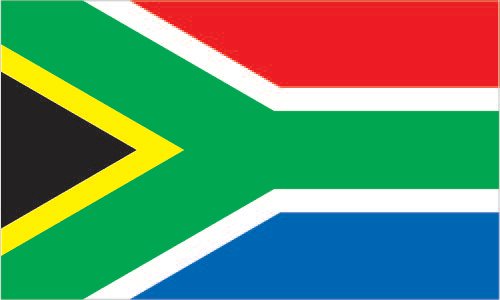
Source: World Bank
Relationships & Communication
South Africans are transactional and do not need to establish long-standing personal relationships before conducting business.
If your company is not known in South Africa, a more formal introduction may help you gain access to decision-makers and not be shunted off to gatekeepers.
Networking and relationship building are crucial for long-term business success.
Relationships are built in the office.
Most businessmen are looking for long-term business relationships.
Although the country leans towards egalitarianism, businesspeople respect senior executives and those who have attained their position through hard work and perseverance.
There are major differences in communication styles depending upon the individual's cultural heritage.
For the most part, South Africans want to maintain harmonious working relationships, so they avoid confrontations.
They often use metaphors and sports analogies to demonstrate a point.
Most South Africans, regardless of ethnicity, prefer face-to-face meetings to more impersonal communication mediums such as email, letter, or telephone.
Business Meeting Etiquette
Appointments are necessary and should be made as far in advance as possible.
It may be difficult to arrange meetings with senior level managers on short notice, although you may be able to do so with lower-level managers.
It is often difficult to schedule meetings from mid December to mid January or the two weeks surrounding Easter, as these are prime vacation times.
Personal relationships are important. The initial meeting is often used to establish a personal rapport and to determine if you are trustworthy.
After a meeting, send a letter summarizing what was decided and the next steps.
Business Negotiations
It is imperative to develop mutual trust before negotiating.
Women have yet to attain senior level positions. If you send a woman, she must expect to encounter some condescending behaviour and to be tested in ways that a male colleague would not.
Do not interrupt a South African while they are speaking.
South Africans strive for consensus and win-win situations.
Include delivery dates in contracts. Deadlines are often viewed as fluid rather than firm commitments.
Start negotiating with a realistic figure. South Africans do not like haggling over price.
Decision-making may be concentrated at the top of the company and decisions are often made after consultation with subordinates, so the process can be slow and protracted.
Dress Etiquette
Business attire is becoming more informal in many companies. However, for the first meeting, it is best to dress more conservatively.
Men should wear dark coloured conservative business suits.
Women should wear elegant business suits or dresses.